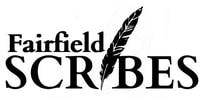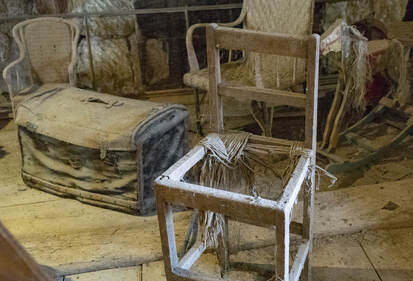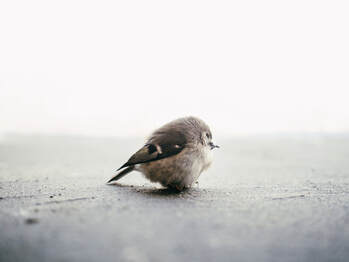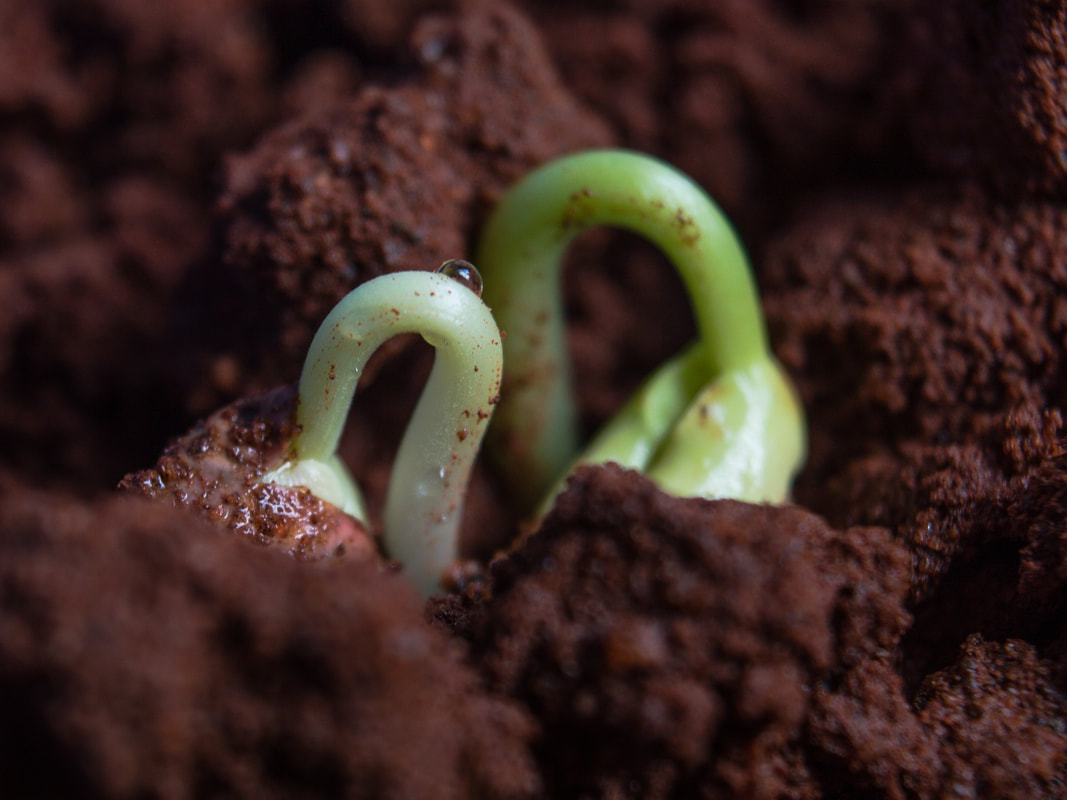ScribesMICRO
* * * Managing Editor: Edward Ahern * * *
* Submissions Editor: P.C. Keeler *
* Submissions Editor: P.M. Ray *
* Associate Editor: Alison McBain *
* Submissions Editor: P.C. Keeler *
* Submissions Editor: P.M. Ray *
* Associate Editor: Alison McBain *
Issue # 6
June 15, 2021
Featuring the short scribblings of:
* Sydney Clark * Jon Fain * David Henson *
* Shelly Jones * Kevin Kaye * Deepti Nalavade Mahule *
* Parzival Sattva * Shoshauna Shy * Karen Watts *
* Rosemary Williams * Jim Woessner * D.M. Woolston *
* Sydney Clark * Jon Fain * David Henson *
* Shelly Jones * Kevin Kaye * Deepti Nalavade Mahule *
* Parzival Sattva * Shoshauna Shy * Karen Watts *
* Rosemary Williams * Jim Woessner * D.M. Woolston *
Featured Author
Interview with Jim Woessner
Welcome to our sixth issue of ScribesMICRO. I’m associate editor Alison McBain, and our interview today is with our featured writer Jim Woessner, author of the microfiction story “Dauntless.”
Jim works as a visual artist and writer living on the water in Sausalito, California. He has an MFA from Bennington College. His publishing credits include The Sea Letter, FewerThan500, Close to the Bone, Adelaide Magazine, Potato Soup Journal, Unbroken Journal, Ariel Chart, Peeking Cat, and others.
Jim works as a visual artist and writer living on the water in Sausalito, California. He has an MFA from Bennington College. His publishing credits include The Sea Letter, FewerThan500, Close to the Bone, Adelaide Magazine, Potato Soup Journal, Unbroken Journal, Ariel Chart, Peeking Cat, and others.
There are two questions here. The first has to do with the mundane or quotidian. The ability to notice small, ordinary aspects of life is for me the key to happiness. Christopher Priest, the British novelist, wrote, “The magician takes the ordinary something and makes it do something extraordinary.” The magician for me is the writer, any writer.
The second part of this question has to do with unexpected endings. The literary term is “volta,” Italian for a turn or sudden shift. I love this device. You’re speeding down one emotional super highway and unexpectedly turn onto a dirt road. The question for the reader is, where are you now? The volta engages the reader, puts him or her inside that speeding car. You’re both author and artist—I often find that people who cross creative genres have a favorite mode of expression. What draws you to your preferred format over others, or is there no preference? The short answer is, I don’t have a preference. One creative experience feeds another. Writing has made me a better artist and vice versa. They have unique ways of communicating, yet there are places where they meet. For example, ekphrastic writing—writing about visual art—has always been a magical translation of one to the other. I’ve written short stories and poems about paintings, and have made paintings inspired by poems and short stories. The process in either direction is about reaching for something that always seems just out-of-reach. And perhaps it is, but you keep trying just the same.
For readers looking for other work by you, can you point them to any stories or books that have just been released or will be released soon? I created a form of syllable poetry a number of years ago called a box poem. It has the same number of syllables in each line as it has lines in the poem. I have written three volumes that are available on Amazon. I also wrote a book entitled Creativity: Crossing the Threshold. It was written as a companion to a course I used to teach, and is also available on Amazon.
|
Fiction
|
Dauntless by Jim Woessner He walked through his father’s house, now an empty shell holding little more than memories. He remembered paintings where they had hung, books where they had been stacked. In the basement, he found leaks, spiders, a cigar box. He blew a cloud of dust motes from the box. Inside was a plastic model of a dive bomber that had once flown on monofilament threads. He wiped off the dust, held it aloft, and made a humming sound. Then the imagined pilot pushed the joystick to one side and dove to an unseen target on the sea of the basement floor.
* * * Jim Woessner works as a visual artist and writer living on the water in Sausalito, California. He has an MFA from Bennington College. His publishing credits include The Sea Letter, FewerThan500, Close to the Bone, Adelaide Magazine, Potato Soup Journal, Unbroken Journal, Ariel Chart, Peeking Cat, and others.
Clearing Out by Sydney Clark Candida steeled herself, her hand gripping the iron doorknob. Three months since he’d left. Ninety-two days. Not a word.
The door opened to reveal his inner sanctum, where the magic happened, where she never felt welcome. Book-lined walls, paper-strewn desk, over-flowing waste basket, the Olivetti he’d preferred. Daring, she settled in his chair, its leather embracing her as he had, his spicy cologne still present, consoling. “I must get on. He’s gone.” She retrieved her supplies from the hallway. Dust eradicated, papers filed or tossed, mahogany gleaming, she sat, gun in hand, content. “I’m ready, dearest. Now, I can join you.” * * * Sydney Clark is a novelist who also writes award-winning Flash Fiction. She is working on her second novel, a historical bio-fiction that she’ll be querying in August 2021. She divides her time between Puerto Vallarta, Mexico and Haliburton, Ontario. The natural beauty of both locales feeds her soul and creativity.
The Light of Their Lives by David Henson She’s born a fuzzy shape of light. Her parents push her open stroller in the sunlight for nourishment, socket special bulbs in the nursery. She grows so bright, she brings tears to their eyes.
Then hair appears, fingers and toes. Flesh and blood obscure her shine. Everyone says they’ll learn to appreciate her inner light. That’s not enough for them. A shaman conjures a potion they force down her every day. Her flesh and blood melt away, hair recedes. Once again, she’s the light of their lives. And without a life of her own. * * * David Henson and his wife reside in Peoria, Illinois. His work has been nominated for Best Small Fictions and Best of the Net and has appeared in numerous print and online journals including ScribesMICRO. His website is http://writings217.wordpress.com.
Botanical Survivalist by Shelly Jones She crushes the violets, tender skin bleeding, staining her. Perhaps he won’t notice, she prays. He hadn’t noticed the flowers when he pushed her into the room, bolting the door behind him.
Removing a bra pad, she scrawls a message with violet ink. She hides it in the empty pizza box as he emerges from the shower. “Trash,” he mutters, flinging the box into the hallway. As he settles on the bed, she hears the cart, imagines housekeeping clearing garbage, opening the box, cardboard scraping signaling her rescue. She waits, purpled fingers digging into the sheets, as a siren wails. * * * Shelly Jones, PhD (she/her/hers) is an Associate Professor of English at SUNY Delhi, where she teaches classes in mythology, folklore, and writing. Her speculative work has previously appeared in Podcastle, New Myths, The Future Fire, and elsewhere.
More a Privilege than a Right by D.M. Woolston Danny stood at the curb with Meatball, his cute but ugly bulldog. The lift arrived and opened, revealing comfortable seats.
“Thank you for selecting Vomisa Transportation.” Meatball pulled away and into a seat at the far window. Danny hesitated, then reached for the leash. The dog slipped farther inside. “Please secure seat belts or exit the vehicle. You have fifteen seconds to comply.” A stray thought hit Danny. Some machine would decide whether they lived or died today. “Come, boy!” Meatball gave a rebellious half-woof. The car continued counting, “Twelve... Eleven... Ten…” Meatball held his ground. Drooling on the plush bucket seat. * * * D.M. Woolston is a programmer and indentured webmaster for his local writers group. Besides killing adverbs that tend to sneak into his computer code, he still looks up into the night sky and wonders who else is wondering back. His own micro-cosmic subset of the universe is at http://www.dmwoolston.com.
|
A Question by Deepti Nalavade Mahule “I hate you!” says my son and hangs up.
Heartbroken, cell phone in hand, I remain sitting on the park bench. “Sir?” says a man, his stench reaching me before he does. He extends his hand, palm turned upward. Needle puncture marks dot his forearm. “Spare a dollar?” His voice is raspy. I hand him money and he starts to shuffle away. “Wait,” I say. He turns around. “When you were a child, did they love you too little or too much?” He stands there, blinking hard. Then he says, “I think that the way they loved me was wrong.” * * * Deepti Nalavade Mahule lives in California, develops software, feeds books to her two children and writes short fiction. Find more of her writing at: deeptiwriting.wordpress.com.
Trick or Treat by Shoshauna Shy Derek’s mother claimed the wily redheaded Eloise tricked him. Didn’t matter the baby was brown. Didn’t prove Derek was the father.
But if Derek got a paternity test, would that convince her, make her soften, bring Grandma to the kitchen with coos and shushes, fold them all into her arms? Well, it still wouldn’t cancel out Derek got tricked. She said this without looking at him, eyes glued to the TV, her jaw working three slices of Big Red gum to a pulp. Almost as if his mother were there that sticky night under the stars when Eloise begged, “I’m infertile--come on!” * * * Author of five collections of poetry, one of Shoshauna Shy's flash fiction stories was nominated for a Pushcart Prize, and then won a page in the forthcoming Best Microfiction 2021 series by Pelekinesis Press. She was also one of the seven finalists for the 2021 Fish Flash Fiction Prize out of County Cork, Ireland.
In Oneonta by Jon Fain The flyers saturated Western New York, offering their services to establish contact with helpful spirits and the beloved dead. Edith made rapping sounds by dislocating the bones in her feet, while Natalie helped the rubes traverse the borderland to hear, in the clicking, the sound of a lost lover’s voice. Besides interpreting the spiritual telegraphs, and a side-grift of phrenology, Nat was the sister charged with identifying suspicious returnees. So, for the rest of their days, she lamented her inattention to the man in the long coat, hiding the cleaver purchased one not-so-fine summer morning from Stevens Hardware in Oneonta.
* * * Jon Fain lives in Massachusetts. His most recent publications are short stories in Fiction on the Web and The Twin Bill, flash fictions in Back Patio Press and The Daily Drunk, and micro fictions in Molecule, Star 82 Review, The Drabble, and Blink-Ink.
Silent Birdsong by Kevin Kaye Before the other children arrived, Alouette’s mother affixed her daughter’s mask. The woman struggled to pull the straps over the girl’s nest of hair. Alouette watched her face vanish in her mother’s mirrored sunglasses. The little girl distorted her reflection in the cambered lenses by leaning in or leaning back as one might in front of a funhouse mirror. Cocking her head to the side and looking out the corner of her eye, she observed a small bird who wanted to sing but had forgotten what whistling was, even as the other kids started to flock to her.
* * * Kevin Kaye lives in Connecticut with his wife, Tamara, and their children, August and Roscoe. His first published story “The Brief Return of Ozymandias” appeared in Oyster River Pages in 2019. He recently finished writing a political novel based on his Peace Corps experience in 1990s Russia.
Collateral Benefits by Parzival Sattva I don’t remember where it happened, but I was involved in a discussion about “collateral damage,” “collateral” here meaning something secondary.
What a terrible thing for the words “collateral” and “damage” to roll off the tongue like they’re Siamese twins. It’d be far more pleasing, for me anyway, to talk about “collateral benefits.” Consider that for a second: good things arising from something else happening. It’s so “a rising tide lifts all boats,” which is an euphemism I don’t hear nearly enough. And it applies here, too—I’ve written a story and perhaps, as a side benefit, planted a seed. * * * |
Creative Nonfiction
Invitation to a Post Pandemic Party
by Rosemary Williams
by Rosemary Williams
|
“Please come to a party on Saturday to celebrate the end of isolation.” This invitation was a message on my phone. I was surprised at my immediate, silent, response. Oh, no! Do I have to go? Yes, you do have to go. Why? Why do I have to go—because you’ve been invited. I haven't been to a party in over a year. I’m afraid to be with all those people. Why do I hesitate to move out of my cocoon? Does anyone else feel like me? Is anyone else being slow to reenter the ordinariness of yesterday?
* * * Rosemary Williams is a former banker, financial planner and the founder/director of Women’s Perspective, a non-profit educational organization conducting workshops, and retreats. She is the author of The Women’s Book on Money and Spiritual Vision and has been recently been published in Reader’s Digest, and online in Fairfield Scribes and The Mindful Word.
Hacker Son by D.M. Woolston I’m a hacker. Not the guy stealing your information, just a kid who got in trouble for breaking into the high school network. I’ve reformed since then, and now I have a son.
It started with an email from Microsoft thanking me for a purchase. I logged in and my avatar’s clothing had been changed, along with him sporting a mustache. Crap. The hacker had been hacked, and I’m out twenty-five bucks because my five-year-old clicked some button. A chip off the old memory block, I am so proud. Now I set parental controls, until he finds his way around that. * * * D.M. Woolston is a programmer and indentured webmaster for his local writers group. Besides killing adverbs that tend to sneak into his computer code, he still looks up into the night sky and wonders who else is wondering back. His own micro-cosmic subset of the universe is at http://www.dmwoolston.com.
|
Poetry
|
The Pictures Are Snapping Their Frames by David Henson The pictures are snapping their frames,
glass twinkling to the floor. The contemporary geometric bleeds a sunrise down the wall. The seascape pours itself at my feet. Are they giving up or taking over? I wonder as the sails of the tall ships fill like lungs. Bites crunch into the giant apple hanging over our bed. The bathroom horse kicks apart the shower stall. I puff into the blown-up photo of the dandelion, and silver parachutes twinkle the air just as my wife walks in. About time you noticed, she says. * * * This poem was first published in The Round Table Journal.
David Henson and his wife reside in Peoria, Illinois. His work has been nominated for Best Small Fictions and Best of the Net and has appeared in numerous print and online journals including ScribesMICRO. His website is http://writings217.wordpress.com. |
Entropic Essentiality by D.M. Woolston A star awakes in the midst of a dying universe.
The last lone sequin dangling in space, its lustrous arms extend outward but there is nothing to warm or illuminate. Still, it burns with the white hot fusion of survival. The life-giver forges onward through infinitesimal explosions while holding back against the death-grip of Entropy, but time comes for all things. In a last courageous effort to continue, the once bright beacon succumbs with great fiery exhalation, winking forever out of existence. Eternity reigns. But somewhere, in yet another continuum, a blinding singularity explodes from within the nothingness. * * * D.M. Woolston is a programmer and indentured webmaster for his local writers group. Besides killing adverbs that tend to sneak into his computer code, he still looks up into the night sky and wonders who else is wondering back. His own micro-cosmic subset of the universe is at http://www.dmwoolston.com.
|
|
The Journey of Stardust by Karen Southall Watts Walking.
A fast pace to hide nervous energy and a clumsy gait. Fear keeps popping up. Sexual tension. He smells of laundry detergent, sweat, and strawberries. I taste my first kiss in the middle of the street. Sleeping. A careful step, almost a shuffle, meant to be quiet. Exhaustion the new normal. Pure creation. In her crib she sleeps, after a wriggle, a kick, and sigh. I keep watching to monitor each breath. Waking. A series of pops and cracks accompanied by pain of course. Pain is always present. Slow dissolution. It’s happening with every missed step, hot flash, and brain burp. I can almost hear the machinery shutting down. * * * Karen Southall Watts experiments with writing in multiple genres when she is not teaching Humanities in the Pacific Northwest.
|
|
The Poets' Salon
If you're looking for more poetry, including a place to read your work, receive critiques, and explore poetic forms, check out The Poets' Salon. Two editors of ScribesMICRO, Edward Ahern and Alison McBain, run this free poetry workshop. Meetings take place on the second Saturday of every month from 10 a.m. to noon EST via Zoom. More info, including how to sign up for the poetry workshop, can be found on The Poets' Salon website or via Meetup. |
















